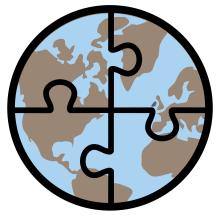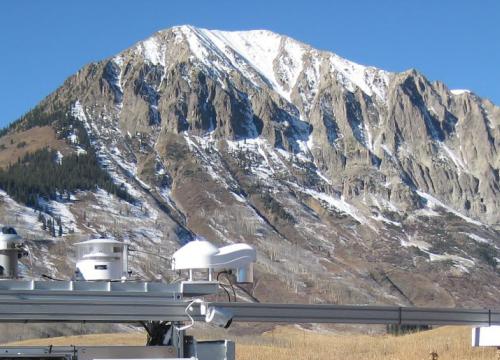Data Puzzle: Wildfire, Drought, and the Future of Forests
As part of a 2017 study, Dr. Camille Stevens-Rumann and her team of scientists sought to determine how a changing climate (drier) over the last several decades impacted post-fire tree regeneration. To answer this question, these scientists measured the regrowth (or lack thereof) of conifer seedlings (young, small trees) from 1485 burn sites across the US Rocky Mountains that were affected by fires during the 1985-2015 time period. The results of this study suggest that seedlings have a hard time regenerating (regrowing) in warm/dry conditions. In a future projected to be warmer and drier, we may see landscapes that were forested before a wildfire, transition to grasslands and shrublands after being burned if conifer seedlings are unable to grow back.
Context for Use
This Data Puzzle is part of a larger collection of Data Puzzle resources that combine classroom-friendly datasets with Ambitious Science Teaching practices to help students make sense of phenomena!

Image of fire and burned landscape
Goals Header
What Students Will Do
- Analyze and interpret post-fire forest recovery datasets to identify conifer tree regeneration patterns
- Construct a model to explain the relationship between drought (cause) and post-fire tree regeneration (effect) in the northern Rocky Mountains
Teaching Materials
Description
Part 1 – (20 minutes) Eliciting Students’ Ideas
- Access students' prior knowledge post-fire landscape recovery (succession) by asking students to consider what a burned landscape might look like 5, 10, and 20 years after a wildfire.
Part 2 – (40 minutes) Identifying Important Science Ideas
- Students engage with an interactive reading to 1) making connections between the opening scenario prompt and the work of Dr. Camille Stevens-Rumann, a fire ecologist who studies post-fire landscape recovery, and 2) make predictions as it relates to Dr. Stevens-Rumann's research question, "How do climate conditions impact the recovery of forests after a wildfire?"
Part 3 – (40 minutes) Supporting Ongoing Changes in Thinking
- Students test their predictions by analyzing post-fire forest recovery datasets collected from the northern US Rocky Mountains.
Part 4 – (40 minutes) Constructing Evidence-Based Explanations
- Students reflect on evidence gathered during parts 1-3 and construct a final explanatory model for the question, "How do climate conditions impact the recovery of forests after a wildfire?"




